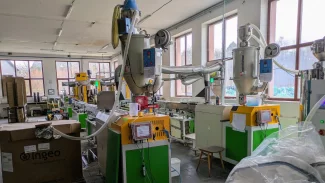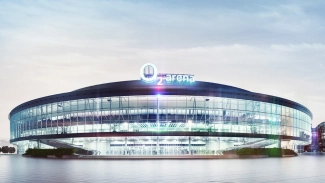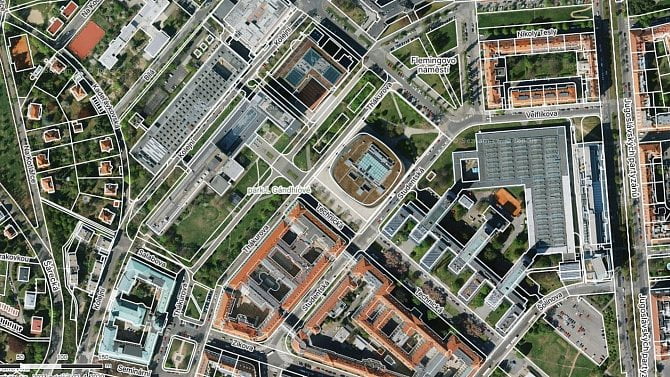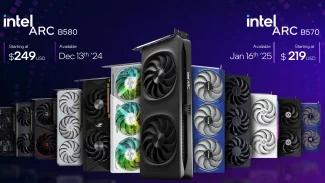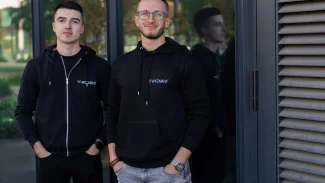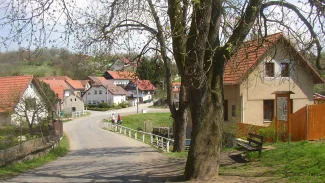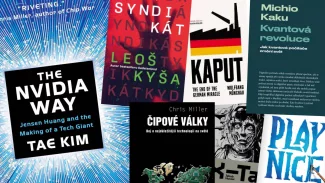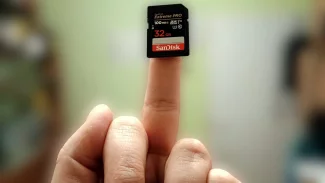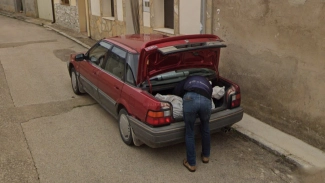Odpověď na názor
Odpovídáte na názor k článku Radeony budou také umět ray tracing, potvrdil šéf grafické divize AMD. Jen nevíme kdy. Názory mohou přidávat pouze registrovaní uživatelé.
-
Tento text je již více než dva měsíce starý. Chcete-li na něj reagovat v diskusi, pravděpodobně vám již nikdo neodpoví.
-
Maudit (neregistrovaný)
V tomhle pripade neco mezi jednim nebo dvema rady, v zavislosti na scene/technice. V uvahu jsem bral deklarovany rozdil ve vykonu raytracingu mezi GTX 1080Ti a RTX 2080Ti a normalni vykonostni rozdil mezi Vegou 64 a GTX 1080 Ti.
Btw, porad jsi nedodal zadne dukazy pro ta tva alternativni fakta, na kterych si postavil cely ten clanek o DLSS:
„Jan Olšan 17.9.2018 at 15:13“
„Co vidíš, je prostě efekt toho, že DLSS pracuje jako spatial filtr, jen s jedním obrázkem. Protože nefunguje temporálně (s více snímky)“
https://www.cnews.cz/nvidia-dlss-deep-learning-supersampling-upscaling-princip-fungovani/#comment-194887
"Jan Olšan 8.11.2018 at 20:51"
"Tyhle řeči o rozpoznávání objektů jsou abstraktní hodně za vlasy přitažená omáčka, reálně to ta neuronální síť nedělá, prostě jen vezme pixely, upraví je podle svých natrénovaných vah."
https://www.cnews.cz/amd-procesory-cpu-architektura-zen-2-zlepseni-ipc-avx2-mcm-chiplet-epyc-rome-servery/#comment-198256
Pritom DLSS zcela jasne funguje jako temporalni sit, pracujici s vice snimky, jak dle vyjadreni primo sefa Nvidie zde:
„Network has to remember part of the past.“
„Network has to be temporaly stable.“
https://youtu.be/Mrixi27G9yM?t=52m35s
Tak dle Turing Whitepaperu zde:
„Finally, Figure 24 illustrates one of the challenging cases for multi frame image enhancement. In this case, a semi-transparent screen floats in front of a background that is moving differently. TAA tends to blindly follow the motion vectors of the moving object, blurring the detail on the screen. DLSS is able to recognize that changes in the scene are more complex and *combines the inputs in a more intelligent way that avoids the blurring issue*.“
https://www.nvidia.com/content/dam/en-zz/Solutions/design-visualization/technologies/turing-architecture/NVIDIA-Turing-Architecture-Whitepaper.pdf (strana 35 dole)
A je to bez te pomlcky mezi „multi“ a „frame“. Vyhledavani krasne funguje.
A kdyby to nestacilo:
„DLSS leverages a deep neural network to extract multidimensional features of the rendered scene and intelligently combine details from multiple frames to construct a high-quality final image.“
https://devblogs.nvidia.com/nvidia-turing-architecture-in-depth/
Ta informace o rozpoznavani detailu k dispozici je taky, jak z keynote sefa Nvidie, tak v dalsich prezentacich. DLSS je convolutional autoencoder. Viz treba zde: https://youtu.be/QLMDX56-GSU?t=338
Autoencodery ve zpracovani obrazu se uci rozpoznavat objekty ve zdroji.
„Some architectures use stacked sparse autoencoder layers for image recognition. The first autoencoder might learn to encode easy features like corners, the second to analyze the first layer’s output and then encode less local features like the tip of a nose, the third might encode a whole nose, etc., until the final autoencoder encodes the whole image into a code that matches (for example) the concept of ‚cat‘.“
https://en.wikipedia.org/wiki/Autoencoder
Doslova – prvni layer autoencoderu se nauci rozponat hranu, dalsi na zaklade toho predchoziho spicku nosu, dalsi cely nos .. az na konci pozna, ze je na obraze kocka.
Takze abych to shrnul:
Ja jsem dodal odkazy na vyjadreni nekolika lidi primo z Nvidie, odkaz na jejich whitepaper, coz oboji potvrzuje, ze je ta DNN temporalni. Ono taky jak jinak chces sledovat „zmeny v obraze“ – „DLSS is able to recognize that changes in the scene are more complex“ – bez znalosti predchoziho stavu? Dal jsem sem i odkaz s jasnym vysvetlenim, ze autoencoder pri rozpoznavani obrazu identifikuje detaily. Linknul jsem i vysvetleni z TechPowerUpu o tom samem, ktere je jasne popira, co tvrdis ty.
Ty zatim nic, stale cekam, kde je napsano cokoliv o tom, ze DLSS je spatial filtr a vyslovne napsano, ze tvrzeni Huanga na keynote o temporal DNN je nepravdive.
Novinarska etika se asi nekam vytratila. Porad nam tu budes okecavat tvoje totalni novinarske selhani. Tvoje reci o vykrucovani, uhybani a alternativnich faktech asi rad aplikujes jen na ostani, na tebe ne, vid? Double standard, hezky ..
-
Přidávat názory mohou pouze přihlášení uživatelé.
-
Václav Větvička|Včera
-
Jan Olšan|20. 12. 2024
-
Dominik Dobrozenský|20. 12. 2024
-
Radomír Kejduš|20. 12. 2024



